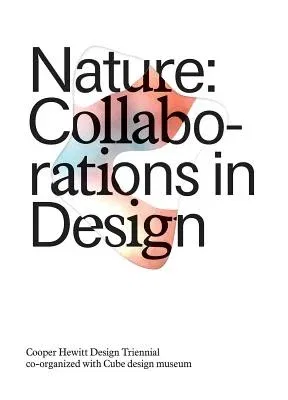How designers are collaborating with scientists and ultimately with
nature itself
Designers today are striving to transform our relationship with the
natural world. Although humans are intrinsically linked to nature, our
actions have frayed this relationship, forcing designers to think more
intentionally and to consider the impact of every design decision, from
an artifact's manufacture and use to its obsolescence. As a result,
designers are aligning with biologists, engineers, agriculturists,
environmentalists and many other specialists to design a more harmonious
and regenerative future. Based on these new partnerships, designers are
asking different questions and anticipating future challenges, which not
only change the design process, but also what design means.
Nature: Collaborations in Design--companion to an exhibition titled
Nature--Cooper Hewitt Design Triennial, Co-organized with Cube design
museum--includes over 65 international projects from the fields of
architecture, product design, landscape design, fashion, interactive and
communication design, and material research. More than 300 compelling
and exquisite photographs, illustrations and content from data
visualizations illustrate seven essays, which explain and explore
designers' strategies around understanding, simulating, salvaging,
facilitating, augmenting, remediating and nurturing nature. Four
conversations between scientists and designers delve into topics related
to synthetic biology, scientific versus design lexicon and recent shifts
in the meaning of nature with a glossary illuminating scientific,
technological and theoretical concepts and processes invoked by the
designers.
Projects include DnA_Design and Architecture's Bamboo Theater; Open
Agriculture Initiative's Personal Food Computers; Warka Water's Warka
Water Tower; Sam Van Aken's Tree of 40 Fruit; the ODIN's DIY Bacterial
Gene Engineering CRISPR Kit; Michael Strano and Sheila Kennedy's
Nanobionic Light-Emitting Plants; MASS Design Group's Rwanda Institute
for Conservation Agriculture; Stamen Design's Metagenomic Data
Visualization for the Banfield Lab; Modern Meadow's Zoa; Cave
Architects' Anthropocene Museum and Kim Albrecht's Visualizing the
Cosmic Web.

